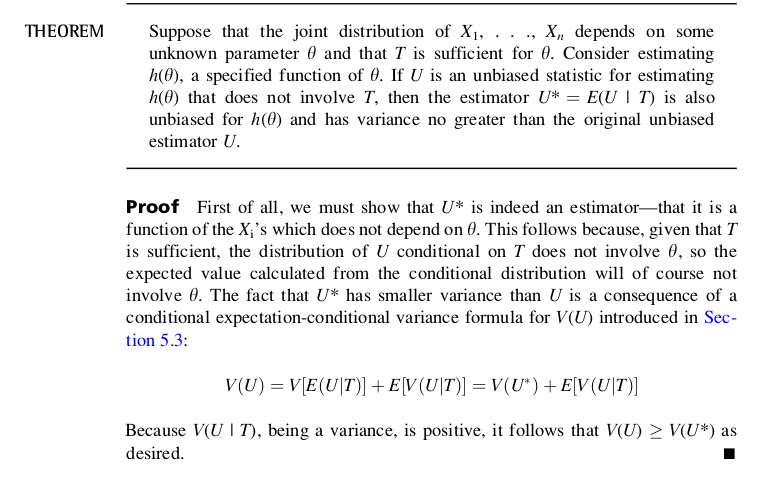
This is an excerpt from "Modern mathematical statistics with applications" by Devore et al. What puzzles me is that the estimator cannot help being dependent on $\theta$, since the sample depends on the parameter.
You are right that any sensible estimator will be a (non-constant) function of the data (except in some special, arguably pathological, cases, such as my example here). So, it is correct to say that a reasonable estimator does depend on $\theta$ through its dependence on the data. But, I'm pretty sure all that is meant by the sentence
Show that $U^{\star}$ is indeed an estimator - that it is a function of the $X_i$'s that does not depend on $\theta$
is that the formula for an estimator cannot contain the parameter. This is to exclude things like $\hat{\theta} = \theta$, which would be a perfect estimator (even if you had no data!!) but you'd need to be psychic in order to calculate it :-)
As noted in the passage you pasted, since $T$ is a sufficient statistic, the distribution of any statistic, e.g. $U$, conditional on $T$, will not depend on $\theta$. Therefore, $U^{\star} = E(U|T)$ cannot depend on $\theta$, ensuring that it will have the property in question.